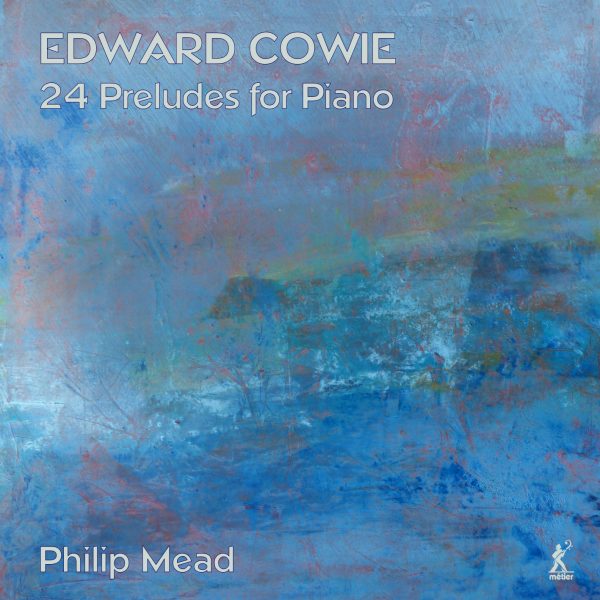Fanfare
Edward Cowie is an English composer, born in 1943, who is also a painter and natural scientist. His 24 Preludes are divided into four books with elemental titles—“Water,” “Air,” “Earth,” and “Fire”—comprising six pieces each. The music is tonal, but the tonality is often stretched quite a bit. The harmonic structure of the cycle is the circle of fifths, starting with C Major and Minor, G Major and Minor, and so on. This time-honored scheme has the effect of bringing a certain unity to the whole set.
In his accompanying note, “Personal thoughts on the Cowie Preludes,” pianist Philip Mead notes that although the preludes of Chopin, Debussy, and Messiaen are closer in time than Bach’s, he finds the influence of Bach on Cowie’s cycle to be the strongest. Mead points to Cowie’s emphasis on polyphony and contrapuntal textures. That may be true, but certainly the color of this music is closer to Debussy and Messiaen.
In Cowie’s composer’s notes he recalls “fighting to join the avant-garde so dominant in Germany and France at that time,” the 1960s. But he abandoned Serialism and atonality, experimenting instead with “tonal drifts and weavings between one key-region and another. And then – just as suddenly – I decided to fuse tonality with atonality in a kind of meltdown of harmonic procedures.” The Preludes were composed between 2005 and 2007, by which time Cowie had become comfortable with that fusion. The results are like miniature character pieces based on observations of nature that he had made during a lifetime of travel.
What holds the listener’s attention for the full set is the variety of mood and character. Each prelude has its own title. For instance, No. 6 is “Tennessee River,” and as Mead points out, the left-hand tremolos suggest the flow of water. No. 18, “Shenandoah Valley,” evokes the vast spaciousness of the rivers and mountains of West Virginia, particularly in the final pages where the music begins rippling rapidly. One can enjoy the music without paying attention to the titles, and as such, these are quite lovely piano pieces. However, keeping the specific title of each Prelude in mind will enhance your understanding of what Cowie is trying to convey without unduly distracting you from simply enjoying the music.
This is a reissue of a recording made in 2007. I don’t have the original to compare it with, but the sound here is natural and very clean. Mead, for whom the music was composed, plays with complete identification and brilliant technique. For anyone interested in expanding their listening beyond standard keyboard repertoire, this CD is warmly recommended.
@divineartrecordingsgroup
A First Inversion Company
Registered Office:
176-178 Pontefract Road, Cudworth, Barnsley S72 8BE
+44 1226 596703
Fort Worth, TX 76110
+1.682.233.4978












